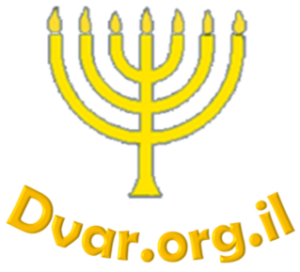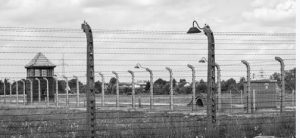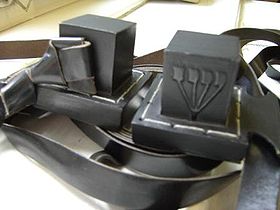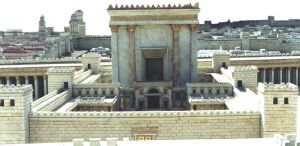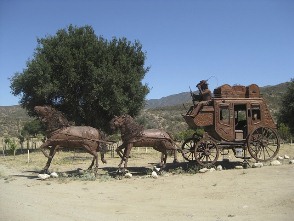
You are standing here today, all of you, before Hashem your G-d… The Midrash comments on this verse saying “When are the Jewish people standing? When they are together (“all of you”). Listen to this parable: A man was blessed with many sons. On his death bed, when they were all gathered round, he took out a bundle of reeds. He said to his sons “see if you can break them”. Though they were all strong boys, none of them could manage it. “I will show you how you do it,” said the father. He took the bundle, separated the reeds from each other, and snapped them easily – one by one. “Take heed of this lesson and stay together,” he said. “If you do, nobody will prevail against you. But if you separate, you will be broken one by one.” The same applies to the Jewish people. If we are unified, nobody can touch us. In this first verse, Why does Moshe use the word ‘today’? As we know, there is not even one letter in the Torah that is extraneous. Couldn’t he have started by saying ‘You stand before G-d….’? The answer is that Moshe used the word ‘today’ to give an analogy between the Jews and the day. Darkness is always followed by the rising sun. Sometimes, as Jews, we feel that the world goes against us, and indeed it does. Which gentile nation truly stands behind the Jews? Who cares about Israel? Who gives a hoot if the Jews have a homeland, and are free to serve G-d unhindered? These are but a small example of how western society opposes the life of the Jew. But if we stick together, if we grow to love each other as members of the same race, whether we are Ashkenazi, Sephardi, Chasidic, Yemenite, whatever – then nobody will be able to lay a finger on us. There will be no more Arab opposition to the ‘Palestinian occupancy’. There will be no more Le Pens. There will be no more anti-semitism in our place of work, and we will all be able to leave early on Fridays. There will be harmony. All we need to do is harmonise! The Midrash continues: “The Jewish people will not be redeemed until they are a unified group.” This is a very scary fact. Just think at the amount of disunity there is amongst us at the moment. And you don’t even have to look at the gaping gorge between the religious and secular Jews. Just look at the differences within the Orthodox! This is something we must all work on – whatever type of Jew we are! We have to build achdut (unity), and this is of paramount importance. The following story from Rabbi Chaim of Volozhin will illustrate this: A nobleman driving a carriage drawn by four large horses was caught in a rainstorm. The carriage veered from the main road and its wheels sank in the mud. The man kept lashing his horses, but to no avail; the horses were unable to budge the carriage. A peasant with three small ponies soon passed by and advised the nobleman to unharness the large horses and let his ponies do the job. The nobleman was sceptical; if his four strong horses couldn’t move the carriage, what could three scrawny ponies accomplish? But the peasant insisted. As soon as the ponies were harnessed, the peasant gave one stroke with his whip, and the ponies dragged the carriage out of the mud. The astonished nobleman looked on incredulously, and asked the peasant how the ponies could accomplish what four large hoses couldn’t. The peasant asked where he acquired his horses. The nobleman replied that they were bought from four of the world’s finest stables. “That’s exactly the problem,” said the peasant. “Your horses are rivals and feel animosity toward each other. When one is lashed, the other three are lashed and don’t try to help. My ponies might be small, but they are brothers. When one is lashed, the other two try to save him with all their strength. Therefore, my three ponies accomplished more than your four grown horses.” Let’s get back to the start of the Sedra. We still find Moshe speaking to the Jews, on the last day of his life. Whereas in last week’s Sedra he warned the people with the 98 curses that they would endure if they wouldn’t keep the Torah, he now begins with comforting assurances. He tells them that they are all entering into a covenant with G-d. This was not just for the benefit of all those present, but for all the Jews who would be born in the future – their unborn souls were present at the assembly. Hashem already made a covenant with the Jews at Sinai. Why did he need to make another one just as they were entering Israel? This is because the utter desolation of the desert experience, and the fact that they were totally dependent on G-d’s miraculous Providence for their survival, may have coerced them to keep the Torah in the wilderness. Hashem considered a new covenant absolutely necessary at this point for there was danger that they might forsake Him in this ‘Land of Milk and Honey’ and give up on the Torah, Heaven forbid. G-d wanted the Jews to do Teshuva (repentance). They asked Moshe ‘Will Hashem accept our Teshuva?’. Moshe answered on behalf of Hashem: · ‘I accepted Cain’s Teshuva – shall I not accept yours?’ Cain, who had murdered his brother, had a harsh decree issued against him. However, when he confessed his sin, half the decree was rescinded and he was allowed to settle in the city of Nod. · ‘I shall accept Achav’s Teshuva – shall I not accept yours?’. King Achav, who ruled over the Ten Tribes in the time of the prophet Ovadiah, was so evil that he substituted G-d’s name in the Torah with the name Baal (an idol): ‘In the beginning, Baal created’, etc. There was no evil that he did not commit. Achav murdered a man called Navot in order to obtain his vineyard. G-d sent Elijah the prophet to confront the king and predict ‘In the place where dogs licked the blood of Navot, dogs shall lick your blood’. On hearing this, Achav tore his garments and put on sackcloth. He called on Jehosephat (the King of Judah) to whip him forty lashes twice daily. He fasted three hours a day, and walked barefoot. He asked Hashem for forgiveness, and for his humility he was told that the evil would only come in his son’s lifetime. · ‘I shall accept King Menashe’s Teshuva – shall I not accept yours?’. King Menashe, who ruled over Judah, put a four-faced idol in the Temple so that whichever direction one would enter from, they could worship it. G-d’s Presence departed from the Temple. In turn, G-d delivered Menashe into the hands of the Assyrian generals. They clapped him in irons and put him on an iron donkey under which they lit a fire. This was extremely painful. Menashe prayed to his idols, but they didn’t answer him. Then he remembered that his father King Chizkiyahu taught him to call to Hashem in times of trouble. He tried to make a bargain with Hashem, saying that if He doesn’t answer, then he will proclaim that all gods are the same. In Heaven, G-d said ‘This man doesn’t deserve that I accept his prayer, but if I refuse him, people in the future who wish to repent will be discouraged.’ G-d was about to accept his prayer when the angels intervened. ‘Is repentance possible for a man who put an idol in the Temple?’, whereupon the angels shut all the Heavenly windows to prevent Menashe’s prayer being accepted. What did G-d do? He [as it were] bored a hole under His Throne for the prayer to get through. After his prayer was answered, Menashe acknowledged Hashem, removed the idols and commanded the people of his kingdom to serve Hashem. Moshe continues by saying that if the Jewish people do Teshuva and keep the Torah with heart and soul, G-d will take us out of exile from all the four corners of the earth and return us to where we should be – Israel. There are two times for this Final Redemption: immediately (if we do perfect Teshuva) or at a pre-determined time by G-d. Our job is to try for the former. We might ask ourselves ‘How can I keep the Torah? It is beyond me. Leave me alone.” Sound familiar? I’m sure it is. Consider the following story from one of the Sages of the Talmud: “Once when wandering from place to place, I met a Jew who was unlearned in Torah and Mitzvot. I asked him ‘What will you answer G-d on the day of judgement?’ ‘I have a valid excuse,’ he said. ‘I will say that Heaven has not endowed me with the intelligence to study Torah.’ I asked him his profession, and he told me he was a fisherman. I asked him how he did it, and he told me that he is given flax from which he spins nets which he uses to catch the fish. ‘If you are smart enough to make nets and catch fish,’ I told him, ‘how can you say that you cannot understand Torah?’ He broke down crying in sincere repentance, and I comforted him, saying ‘My son, there are many like you who will offer excuses on the day of judgement. G-d will disprove them all.’ ” All of us are good at something, whatever it is. Why can’t we be good at Torah? SHABBAT SHALOM
|
